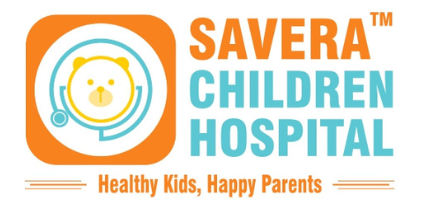Neonatal jaundice is a common condition that affects many newborns within the first week of life. Characterized by a yellowing of the skin and eyes, this condition is usually harmless and resolves on its own. However, in some cases, jaundice can be a sign of a more serious underlying issue that requires medical attention. Understanding the causes, symptoms, and treatment options for neonatal jaundice can help parents navigate this common yet sometimes concerning condition with confidence.
What Is Neonatal Jaundice?
Neonatal jaundice occurs when there is a high level of bilirubin in a baby’s blood. Bilirubin is a yellow pigment produced during the normal breakdown of red blood cells. In newborns, the liver, which is responsible for processing bilirubin, is often not fully developed, making it less efficient at removing bilirubin from the blood. As a result, bilirubin accumulates and causes the skin and the whites of the eyes to appear yellow.
Causes of Neonatal Jaundice
Several factors can contribute to the development of neonatal jaundice. Some of the most common causes include:
- Physiological Jaundice: This is the most common type of jaundice and occurs in most newborns. It usually appears on the second or third day after birth and is a result of the baby’s immature liver. As the liver matures, it becomes more efficient at processing bilirubin, and the jaundice typically resolves on its own within a week or two.
- Breastfeeding Jaundice: Breastfeeding jaundice can occur when a baby is not getting enough breast milk, either due to difficulty with breastfeeding or a delay in milk production. This can lead to dehydration, which in turn causes bilirubin levels to rise. This type of jaundice usually appears within the first week of life.
- Breast Milk Jaundice: Unlike breastfeeding jaundice, breast milk jaundice is not caused by inadequate breastfeeding but by substances in the breast milk itself that may inhibit the breakdown of bilirubin. It typically develops after the first week and can last for several weeks, though it is generally harmless.
- Hemolytic Jaundice: This type of jaundice occurs when there is an abnormal breakdown of red blood cells, leading to an excessive production of bilirubin. It can be caused by blood group incompatibility between the mother and baby, such as Rh or ABO incompatibility. Hemolytic jaundice can develop within the first 24 hours after birth and may require more intensive treatment.
- Premature Birth: Babies born before 37 weeks of gestation are more likely to develop jaundice because their livers are even less developed than those of full-term babies. Premature babies may also have fewer bowel movements, which can slow down the excretion of bilirubin.
- Infections or Other Medical Conditions: In rare cases, jaundice can be a sign of an underlying infection, liver disease, or other medical conditions such as hypothyroidism. These conditions may interfere with the normal processing of bilirubin.
Symptoms of Neonatal Jaundice
The primary symptom of neonatal jaundice is the yellowing of the skin and the whites of the eyes. This yellow tint usually starts on the face and then spreads downward to the chest, belly, and legs. Other symptoms that may accompany jaundice include:
- Dark urine: While newborns typically have very light-colored urine, jaundiced babies may have darker urine due to the excess bilirubin being excreted.
- Pale stools: Normal newborn stools are often yellow or green, but pale or white stools can indicate high bilirubin levels.
- Lethargy: Jaundiced babies may be more sleepy or difficult to wake up for feedings.
- Poor feeding: Babies with jaundice may have difficulty breastfeeding or feeding from a bottle.
Diagnosing Neonatal Jaundice
To diagnose jaundice, doctors typically perform a physical examination and may also order a blood test to measure the baby’s bilirubin levels. In some cases, a transcutaneous bilirubinometer, a device that measures bilirubin levels through the skin, may be used. The results of these tests help determine the severity of the jaundice and whether treatment is needed.
Treatment Options for Neonatal Jaundice
Most cases of neonatal jaundice are mild and resolve on their own as the baby’s liver matures. However, if bilirubin levels are high or rising rapidly, treatment may be necessary to prevent complications. Treatment options include:
- Phototherapy: This is the most common treatment for neonatal jaundice. During phototherapy, the baby is placed under a special light that helps break down bilirubin in the skin. The light alters the structure of bilirubin molecules, making it easier for the baby’s liver to process and eliminate them.
- Exchange Transfusion: In severe cases of jaundice, particularly those caused by hemolytic disease, an exchange transfusion may be required. This procedure involves removing the baby’s blood and replacing it with donor blood to quickly reduce bilirubin levels.
- Increased Feeding: Feeding your baby more frequently can help increase the number of bowel movements, which aids in the excretion of bilirubin. For breastfeeding jaundice, ensuring that your baby is latching well and receiving enough milk is essential.
- Intravenous Immunoglobulin (IVIg): If jaundice is caused by blood group incompatibility, IVIg therapy may be used to reduce the breakdown of red blood cells, thereby lowering bilirubin levels.
When to Seek Medical Help
While neonatal jaundice is common and often harmless, it’s important to monitor your baby’s symptoms closely. Seek medical attention if:
- The jaundice appears within the first 24 hours after birth.
- The yellowing spreads rapidly or becomes more intense.
- Your baby is extremely lethargic or difficult to wake.
- Your baby is not feeding well or has dark urine and pale stools.
Early detection and treatment are key to preventing complications such as kernicterus, a rare but serious form of brain damage caused by very high bilirubin levels.
Conclusion
Neonatal jaundice is a common condition that most newborns experience to some degree. Understanding its causes, symptoms, and treatment options can help you manage the condition effectively and ensure your baby’s health. If you have any concerns about your baby’s jaundice, it’s always best to consult with a healthcare professional.
For expert advice and care, consult Dr. Supriya Rastogi, a leading pediatrician, and neonatologist in Faridabad. She has extensive experience in managing neonatal jaundice and other newborn health issues. You can reach Dr. Rastogi at 8448550670 or visit www.saverachildclinic.com for more information and to schedule an appointment.

